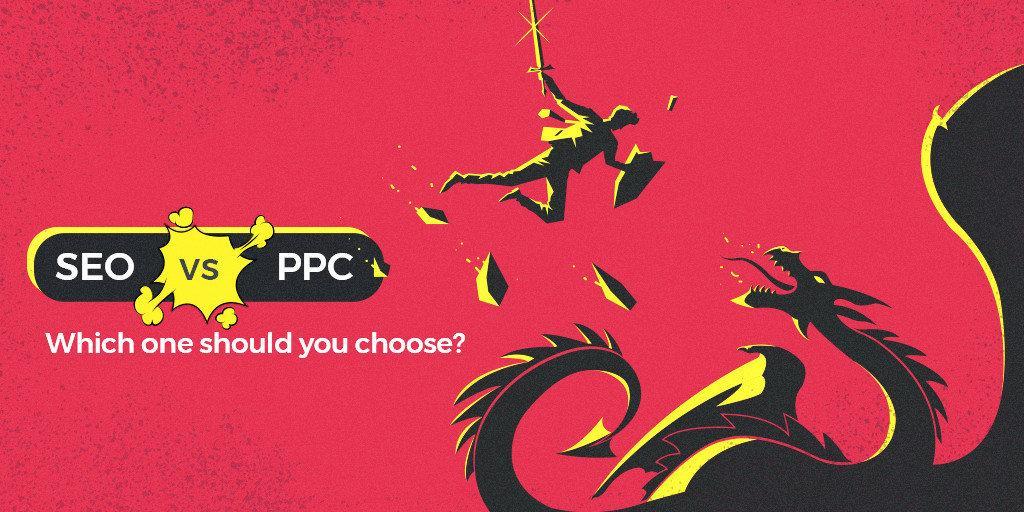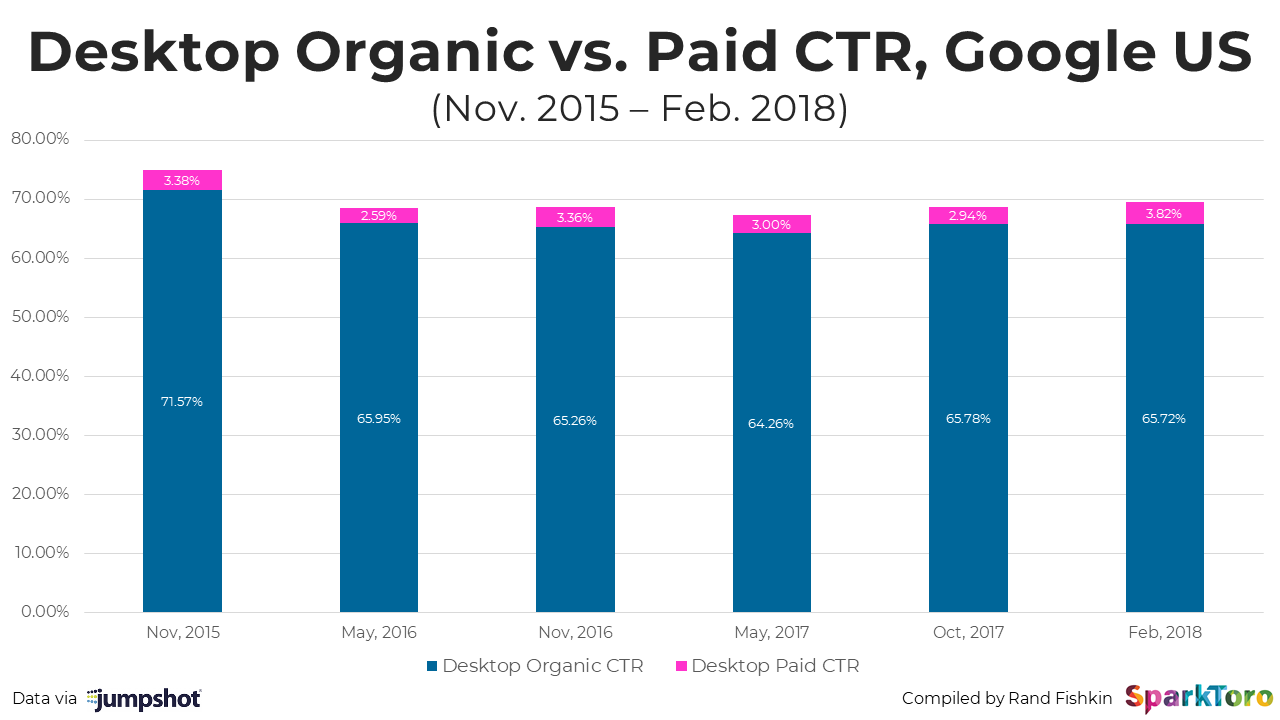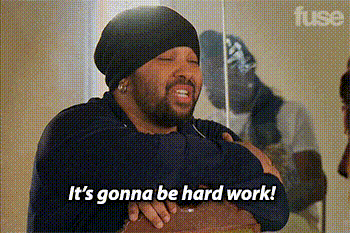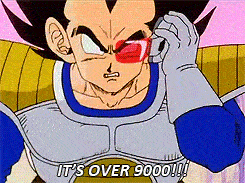When it comes to digital marketing, especially if you’re just starting out, there’s always the question about SEO vs. PPC. What are the advantages and disadvantages of both? And, more importantly, which one is better for you?
The general consensus is that PPC costs money and it brings immediate results, while SEO is free, but takes time. So it’s a simple trade, time for money. Well, the truth is that it’s more to that than you might expect. I’ll clarify everything below.

- SEO Advantages & Disadvantages
- PPC Advantages & Disadvantages
- SEO vs. PPC Recap (side by side comparison)
- Mixing SEO with PPC
Since we’re cognitiveSEO and we have SEO oriented tools, you might think we’ll try to push SEO as being better than PPC. However, this article won’t show advantages and disadvantages so that you may choose one over another, but to help you better understand which are the strong and weak points of each promotion method.
In the end, you’re better off using a mix of both. I’ll tell you exactly why, so keep reading.
SEO Advantages & Disadvantages
Search Engine Optimization is growing more and more popular, especially with startups. Everyone wants to have an optimized website that ranks well because, in their minds, it’s free. However, if you’ve been in business for a while, you very well know that time = money. This isn’t just a phrase. It’s true.
Although SEO might be considered a cheaper way of promoting your website and products, that can actually be far from the case, depending on the niche you’re in and the toughness of your competition. SEO involves content, which is not cheap to create (at least not at a high level).
For example, creating a high quality article on cognitiveSEO can take up to one week (if not more if you count in proofreading and editing). Remember, time = money. But, while ads are an easier way of promotion, we earn a lot more trust by ranking and generating traffic organically, since we’re an SEO oriented company.
Let’s discuss the pros and cons of SEO, to better understand what you’re dealing with when you get started.
SEO Pros
SEO covers the biggest part of search marketing. SEO work is like planting the seeds of a forest. You plant them now but you see the results very far into the future. Although you can speed up the process, that requires a lot more work than just installing WordPress and writing quality content.
It’s free if you do it yourself: As long as you’re prepared to continuously improve your knowledge and spend a lot of time writing your own content, then you can rank high without any investment (except for hosting and a theme).
Gradual learning curve: This can also be seen as a disadvantage, in the way that it can take a long time to learn it. However, what I’m trying to point out here is that you don’t have to master it fast to see results. You can start by doing some simple keyword research and writing your content. Mix that with image optimization and a good server and you’re set. Most Content Management Systems today have a lot of SEO plugins, be it for content or technical issues.
Good ROI: If you take the free path and do everything yourself, SEO has the potential to bring very good results, especially in the local business field, where competition can be less harsh. Even when paying for your services, considering you get to rank on a high search volume keyword, you can get up to 15x the amount of clicks you would get if using paid search. Top organic results can bring over 25% of the organic searches for a keyword. On the other side, paid ads only get about 2-3%. Here’s a screenshot from Sparktoro where Rand Fishkin analyzes the Organic vs. Paid CTR in US.

This discrepancy could be caused by many factors, such as people’s preference for organic results over paid ads (they view them as more trustworthy) and frequent use of ad blocking softwares.
Long term results: If you do your homework and you’re consistent for about 6 months to one year, the results you get can last for years. It’s a good idea to update and improve content from time to time though, especially if something better shows up in the SERPS. However, if you keep sharing your content and get a backlink here and there, chances are you’ll keep your ranks, if not improve them over time.
Good for brand awareness: People often search for information on the web. Even when they want to purchase something, they first look for reviews and guides. If you want to take advantage of that, you need to write informational content that meets their expectations, in order to rank. Over time, this can lead to people remembering your brand. On average, first time clients often need to be brought on your website up to 7 times (if not more) before they trust you enough to make a purchase.
More control over content: When doing SEO, you can rank for virtually anything. You don’t have restrictions on what content you have to display. Also, titles and descriptions can be longer, which leads to better CTRs. You can do virtually anything. However, send clients to a bad page using ads and you’ll be kicked out in no time.
SEO Cons
It takes time to see results: For some, 6 months to 1 year might sound really good, but for others it might sound like an eternity. You need results and you need them fast. Now. If that’s the case, then your focus should be on paid search. However, it’s a good idea to put the basis of SEO as soon as you start. Remember, it takes time to see results, so the sooner you start, the faster you’ll see them. If you postpone SEO, when you do decide to start, you’ll just hear the same 6 months story again.
Hard to master: If you really want to call yourself an SEO expert, you’ll need to learn a lot more than just basic keyword research and link building. HTML and CSS skills might be required, at least at a basic level and JS and PHP come in handy as well. Those don’t include all the other technical things you need to master like sitemaps, indexing, URLs, redirects, multiple language issues and many others. With links getting harder and harder to obtain without a lot of $$$, your content creation and persuasion skills also need to improve significantly. There’s just so much more you have to master with SEO that it can actually be overwhelming. There are even categories, such as Technical SEO and Content SEO. Mastering these both can be very challenging. If you think of PPC like playing an instrument, then SEO is sort of like conducting an entire orchestra.

Hard to scale: If you’re a one man gang, getting things to the next level isn’t very easy. It’s true that you don’t necessarily have to post more to get more traffic, but it’s also true that if you do post more, you do get more traffic. You can only do so many things in 24h. Scaling that requires help, which involves money. If you’re building an authority website and need hundreds of articles per week, editors and a content marketing team then the results will pay off. However, if you’re trying to compete with Dyson to sell your unknown vacuum cleaner, you’re better off with paid search.
High uncertainty: Google works with algorithms. This means that at any time, for any reason, your site might drop from its rankings, or worse, even be removed from the index. Usually this happens if you get involved with BlackHat SEO techniques. If you stick to Google’s Guidelines, you should generally be fine. Still, there are so many reasons for which your website’s organic traffic could drop that it would take another article to list them. We actually have one, mostly limited to 2018 SEO updates.
Less buyer oriented: People search a lot on the web, but most of the time they search for information. Even when they search for things to buy. That’s why it’s a good idea to also build an e-mail list, to be able to bring clients back on your website. Harder to do now, especially in Europe, with the new EU GDPR law.
Hard to A/B test: Although you have full control over your content, A/B testing in an organic searches environment isn’t easy. Google isn’t very fond of duplicate content and you can’t simply ask Google to show another page for one week either. Well, you actually can using canonical tags. However, the canonical tag wasn’t designed for that and it’s very risky to use it that way. You might think that you could simply change the same page and then switch it back. However, any change to a page can result either in an increase or a decrease in rankings. Generally, when people rank high they avoid making any changes to their pages.
| SEO | |
|---|---|
| Advantages | Disadvantages |
| It can be ‘free’ | It takes time to see results |
| Gradual learning curve | Hard to master |
| Good ROI | Hard to scale |
| Long term results | High uncertainty |
| Good for brand awareness | Less buyer oriented |
| More control over content | Hard to A/B test |
When Should You Choose SEO?
Unless you purposely don’t want to be on search engines, SEO is, simply put, for everyone. You should start it as soon as possible, because it takes time for it to work. To be more precise, the SEO planning process should start before even building the website, if you take structure and platform into account.
The later you start with SEO, the later you will see the results. It’s a good idea to start optimizing as soon as possible.
PPC Advantages & Disadvantages
On the other side, we have PPC (Pay Per Click) or SEM (Search Engine Marketing). Some SEOs blame it for being less efficient and costing way more than SEO. However, those claims can be false due to bias. The truth is PPC can be a great method of promoting your website, especially if you’re an eCommerce store or selling a product.
PPC Pros
Generally, people think of PPC as regular advertising, but it’s much more than that. Having the opportunity to show an ad only when someone searches for a specific keyword and, even more, pay for it only when they click, is priceless. There are a ton of good things about PPC. Hadn’t it been so successful, people wouldn’t pay for it.
You can see results instantly: The greatest thing about Pay Per Click is that you can see results right away. That is, of course, as long as your landing page is decent. You need a call to action, so make sure your phone number and contact forms are visible. You will usually pay more depending on the competition. However, there are other factors that are taken into consideration, such as the quality of your titles and content. Either way, ranking in the top 3 with SEO in a day is virtually impossible to achieve.
Easier to master: I’m not saying that you can become an expert overnight but, on the long run, PPC is easier than SEO. Don’t get me wrong. It’s not easy. You still have to learn a lot of things and you also learn those things by burning money usually. However, once you’ve set up a proper campaign and optimized if for a couple of months, you’re kind of set. You also get professional support from official Google employees that help you set campaigns, a luxury that you don’t have in the SEO field. Luckily, there’s guys like us, here at cognitiveSEO. Obviously, there are also advanced tweaks that you can do to your campaigns, things you won’t learn very easily. But there’s a higher chance of finding someone that will create you a decent Pay Per Click campaign than finding someone who will build and execute a good SEO strategy.
You can scale up quickly: Scaling up in Google Adwords is pretty easy. Just pay more money. There are two ways of paying more money. The first is to target more keywords. The second is simply adjusting your daily budget to over 9.000 and become overpower. Then, your competition will be very frustrated:

No uncertainty: You don’t have to fear any updates from Google. In the PPC world, the updates are upfront and not secret. You also spend between 5-10 minutes to set up an ad and another 5-10 to find out if it has been approved or not. You’ll also know exactly what’s allowed and what isn’t. Remember, you also get support from Google itself.
Buyer oriented: Most of the clicks you will get from PPC are buyer oriented. It’s not necessarily that people click Google ads more when they want to buy something (although it’s possible), but because you’ll only be targeting commercial keywords when you place your ads. We all know that search traffic has higher conversion rates. Same goes for paid search advertising. It has higher conversions than social media and Facebook advertising. Google only shows ads if it thinks it’s relevant to the potential customers. So, the user intent dictates whether an ad should show or not. If the keyword is a buyer keyword, there’s a higher chance of an ad displaying.
Easy to A/B test: A/B testing with PPC is really easy. All you have to do is set up two ads and let them run. Whichever gets the most CTR wins. It’s simple. You have to keep doing this to improve your results. A 1% increase in CTR can be a game changer in some situations.
PPC Cons
Like with anything, there must also be downsides. PPC has a few, but depending on who you are and what you do, some might not even seem to be disadvantages. If you have a high profit margin, for example, you can afford to pay ads. However, if you only make 1$ per sale but you have to pay $0.98 to get it, it might not be such a great deal, especially after taxes.
You pay for every click: Well… there’s not much to say here. It’s pay to play. For every click that you get you have to pay. So, as long as you profit from it, the more you spend the more your earn. The math is pretty simple. You need to think in Click Through Rates. Let’s say that you earn $10 per sale. In this case, depending on your demands, you could be spending anything from $0.01 to $9.99 for a sale. However, the money will only bring you traffic. It doesn’t guarantee sales. You need high conversion rates. If you bring in 100 people and your conversion rate is 1%, then you have to make sure those 100 visitors cost less than what you earn for one sale. Otherwise you will be throwing money out the window.
It’s not that it’s bad to pay for every click. It’s just that with SEO you don’t have to 🙂
Steep learning curve: When you first go into the Google Adwords platform, things might be overwhelming. There are a lot of new things to digest: campaigns, ad groups, keywords, negative keywords, budgets, bids, CTR, CPC and many other. If you have no idea what you’re doing, you can burn a lot of money. A recent client of mine set up the campaign on his own and wasted around 75% of his budget because he didn’t set any negative keywords.

However, after having a basic understanding of them, you can easily set up campaigns that run for a profit. There are also official courses from Google which you can attend and even get certified into.
Lower ROI: We’ve talked about how, with SEO, results are a little bit slow but last longer? Well, it’s the exact opposite with PPC. The ROI on PPC is calculated short term, by subtracting how much you spend on the paid search advertisements from how much you earn by selling a product. When you stop paying, you stop displaying so the ROI won’t grow the same way it does with SEO, long term.
Growth is tied to budget: Although it’s easy to scale, PPC is tied to budget. That means if you want to sell more, you also have to pay more. This doesn’t sound so bad, but considering that growth often involves other expenses such as better servers, personnel or even warehouses, you’ll always be short on money.
Not great for brand awareness: When you pay for clicks, you usually want to sell. Fast. Once the user purchases once, it’s anyway easier to retarget them. Even if they ultimately buy from you, chances are they came from someone else’s informational website, either through Adsense or some sort of affiliate link (websites they trust).
Less control over content: If you want your ad to display, you’ll have to respect some rules. Not only with the titles and descriptions, but also with the content. There are certain niches in which you can’t even display ads at all and some words are banned.
| PPC | |
|---|---|
| Advantages | Disadvantages |
| Very fast results | You pay for every click |
| Easier to master | Steep learning curve |
| Easy to scale | Lower ROI, more short term |
| No uncertainty | Growth is tied to budget |
| Buyer oriented | Not great for brand awareness |
| Easy to A/B test | Less control over content |
When Should You Choose PPC?
Well, you can definitely use PPC all the time. The best time to use it, if you have a little bit of budget, is when you’re starting out. The boost can help you keep the business going while you also growing your organic traffic.
However, even when you’re already established, you can’t rank for all the keywords. For those on which you don’t rank, you can pay. You can also use it on keywords you already rank for to increase your CTR. If you have position 1, why not have position 1 and 2?
Best time to use PPC is when you’re starting out, but you can always use it for keywords you don’t rank for or to maximize CTR.
SEO vs. PPC Recap (side by side comparison)
| Green = Advantages Red = Disadvantages |
|
|---|---|
| SEO | PPC |
| Can be ‘free’ | Very fast results |
| Gradual learning curve | Easier to master |
| Good ROI | Easy to scale |
| Long term results | No uncertainty |
| Good for brand awareness | Buyer oriented |
| More control over content | Easy to A/B test |
| It takes time to see results | You pay for every click |
| Hard to master | Steep learning curve |
| Hard to scale | Lower ROI |
| High uncertainty | Growth is tied to budget |
| Less buyer oriented | Not great for brand awareness |
| Hard to A/B test | Less control over content |
Mixing PPC with SEO
Most of the time, people start with PPC because it brings immediate results. They miss out on SEO because they don’t start doing it as soon as possible. If you postpone it, it will only take longer to rank. You can start with it by doing the basic things. For example, having a blog is one of them. Implementing a content marketing strategy for your site is a great way of growing your brand and authority.
People often neglect SEO. I have one client that spends over $2.000 on PPC, whereas the budget for SEO is only about $100. It actually was 0 before I convinced them to start with something basic. Had they spent 25% of his PPC budget on SEO these past 10 years, they would have had a huge authority website with hundreds if not thousands of useful articles. However, they only have service pages and a badly implemented multi language module which I can’t seem to fix without a programmer.
On the other side, small businesses and SEO enthusiasts might also miss out a lot themselves by never taking advantage of PPC. There could be a huge opportunity in selling your products through PPC.
On the long run, it’s true that SEO is much more powerful than PPC. You can rank high with one article for hundreds if not thousands of keywords and the CTRs tend to be a lot higher. But on the short term, PPC is a really good way of gaining some initial traffic and sales and the best way of keeping your positions consistent. The longer a campaign runs, the better CTRs and CPC it scores, as it gets to be really well optimized.
Conclusion:
As you see, both SEO and PPC are good methods to market your products. Now, if you’re starting out with SEO, there’s plenty of content on our blog from which you can learn it. However, we’re lacking a bit on the PPC and SEM side. Maybe we’ll publish more soon. But the idea is that if you mix them, you’ll get the best results.
What’s your experience? Have you tried both PPC and SEO? Which one brought the best results? Let us know in the comments section.

 Site Explorer
Site Explorer Keyword tool
Keyword tool Google Algorithm Changes
Google Algorithm Changes

Hi,Adrian Cojocariu
Nice article, keep up the good work
Will do, Astro!
For a low budget i think SEO is a good choice
Well, yes. But you could be using it on PPC and get good results as well if you have a good profit margin on the products.
It depends 🙂 If your budget is only time and sweat, then yes. SEO is a good choice.
A question we are often asked is, “Which is better: SEO or PPC?” This is not a question with a general answer, as it really, truly depends on the Brand and the which type of marketing you want. But this article removes my doubts which to choose for my brand. Thanks, Adrian for sharing this informative article with us. 🙂
Glad this helped you out, Mayank!
SEO and PPC running simultaneously may bring you insights and learnings that benefit each other. Besides, both strategies are usually complementary since you can run both strategies at the same time to target a different type of KWs.
E.g. Most of long tail KWs don´t work on PPC due to “low search volume”, but you can work on them on SEO.
For same KWs is easier to rank via PPC than SEO, since PPC gives you more chances to beat powerful brands.
Very good point, Juan! If I ever update this I’ll make sure to mention this. There’s a lot you can learn from PPC that helps SEO and vice versa. Another good example is that you get more data from PPC.
great blog! thanks for sharing and keep it up!
We will, as long as you guys keep reading 🙂
It really comes down to the goals of the business. If the business needs immediate results then PPC is recommended. If they can wait till they rank organically which can be from 6 months then SEO would be good long term.
That’s true. However, the point about SEO was that the sooner you start, the better. If you go full frontal on PPC and don’t take care of SEO at all, you’ll stick to PPC and keep paying forever.
Hey Adrian,
Nice Article! I actually think one of the other things that people completely lose sight of is that PPC absolutely needs almost hourly nurturing, if not that, definitely daily. At my previous company, we had a pacing calendar where we matched up budget + targets on a daily basis. SEO gives you a little bit more wiggle room in that regard.
Cory, that’s absolutely true! I’m no PPC expert but I have run some campaigns. I’ve recently got into a hangouts with a friend that’s really good at PPC and he told me that the more often I optimize the campaign, the better results I can get. However, the longer the campaign has run, you also get better results, because it has already been well optimized in that time.
In my case seo work better then ppc because seo is time taking but a permanent solution to get traffic to your website.
Good suggestion
Buzz-cnn.com is the world’s leading online media platform to Business ideas,